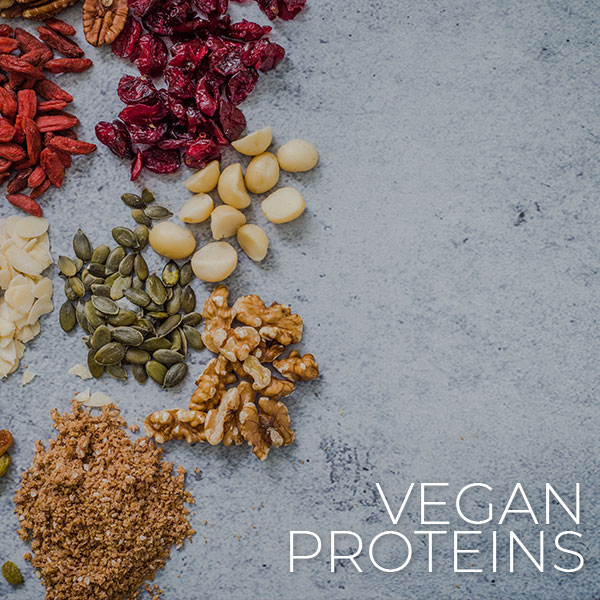Vegan Proteins
Vegan Proteins
With the realities of daily life not always allowing the time to prepare fresh ingredients, it will be powdered products like Pond Naturals vegan proteins that will help consumers incorporate vegan diets into their daily lives.
Since major food producers are recognizing the shift of vegan foods into the mainstream, vegan proteins are becoming a very sought after commodity. The many delicious opportunities for these products range from vegan burgers and nutritious protein drinks or smoothies, to their use as a cooking ingredient and natural additive for the restaurant and food-service industry.
All products are USDA Certified Organic with custom formulations available. Browse Pond Naturals’ growing list of high quality Vegan Proteins.
Amaranth Protein
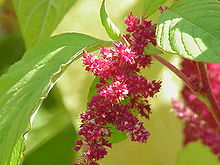
A tall plant with big green leaves and brightly colored flowers, Amaranth was a major food crop of the Aztecs, with some records showing it being used as far back as 8,000 years ago. Although technically not a cereal grain, Amaranth has a similar nutrient profile to other grains and has been awarded membership into the popular group of “ancient grains”. Here are just some benefits of adding amaranth to your daily diet:
- Amaranth has significantly higher protein content than most other grains. It’s also a “complete” protein because it contains lysine, an important amino acid missing in many other grains.
- Contains bioactive peptides, such as lunasin, which have anti-inflammation properties linked to positive results in diabetes, heart disease, and stroke.
- Research shows that patients with cardiovascular issues saw decreases in their amounts of total cholesterol, triglycerides, and LDL.
Let us help you explore how Amaranth Protein can benefit your product line or formulation
Brown Rice Protein
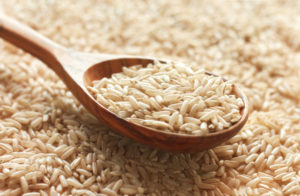
Brown rice offers a convenient source of vegan protein and is rich in natural fiber and bran, which contains oils, fatty acids, and proteins. Since brown rice is hypo-allergenic, it’s a great option for consumers with dairy/soy/gluten allergies. Here are some other benefits of brown rice protein:
- Research suggests that brown rice protein contains unique peptides that can reduce undesired weight gain more than those in white rice protein or soy protein.
- Brown rice protein has been shown to reduce glycemic responses, mitigating blood sugar spikes and helping to regulate glucose levels.
- A study found that brown rice can prevent oxidative stress on the live.
- Peptides in brown rice can help with cholesterol and cardiovascular health.
Let us help you explore how Brown Rice Protein can benefit your product line or formulation
Chia Seed Protein
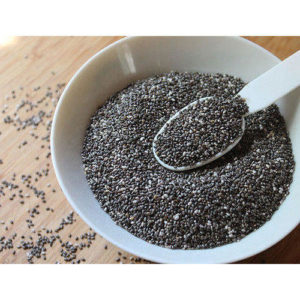
Chia seeds are small black edible seeds, part of the mint family of plants. Chia seeds were an important part of the Aztecs and Mayans food culture, prized for their ability to provide long-lasting energy. Whole grain, gluten-free, and dense in nutrients in a low-calorie package, chia is a great source of protein and other health benefits:
- A powerful source of antioxidants.
- High concentration of fibre.
- Contains all nine essential amino acids
- Good source of heart-friendly omega-3 fatty acids, with approx 75% of fat in chia seeds being omega-3 alpha-linolenic acid (ALA).
- Chia seeds contain a number of beneficial plant compounds, including chlorogenic acid, caffeic acid, kaempferol, and quercetin.
Let us help you explore how Chia Seed Protein can benefit your product line or formulation
Hemp Seed Protein

Hemp seed is a popular source of high-quality vegan protein. With a slightly nutty taste, it’s a convenient addition to shakes, smoothies, or other meals. Here are some of hemp seed protein’s many health benefits:
- Contains all nine essential amino acids.
- Research shows that over 90% of hemp protein is digestible, an important fact considering that animal proteins are generally more easily digested than plant proteins.
- Hemp’s digestibility means your body can use almost all available amino acids, which help maintain many of the body’s important bodily functions.
- Hemp seeds are a great source of minerals, such as potassium, magnesium, sulfur, calcium, iron and zinc.
Let us help you explore how Hemp Seed Protein can benefit your product line or formulation
Pea Protein
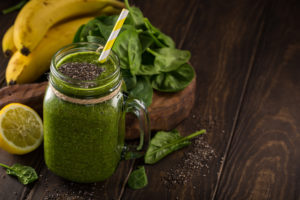
Pea protein is a vegan rising star, with meat-replacement companies using pea protein as their primary ingredient. Besides its varied possible uses and popularity as a source of protein, pea protein offers the following benefits:
- Pea protein can help increase the intake and absorption of iron.
- A great source of protein with potentially positive effects on blood pressure and cholesterol.
- Pea protein contains all nine essential amino acids that your body needs and must get from food sources.
- Research shows that pea protein is one of the more easily digested plant-based proteins, an important factor when comparing with meat-based proteins.
Let us help you explore how Pea Protein can benefit your product line or formulation
Pumpkin Seed Protein
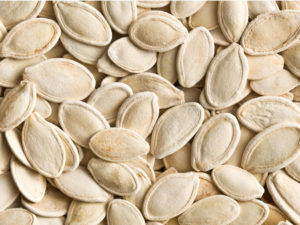
Pumpkin Seeds have been used for centuries in Eastern Europe, India and North America. 100% vegan and gluten-free, pumpkin seeds are high in protein and rich in nutrients. From heart to prostate health, pumpkin seeds are a popular dietary supplement with wide-ranging health benefits:
- Pumpkin seeds help with heart health by providing a good source of magnesium, zinc and fatty acids.
- Contain good amounts polyunsaturated fatty acids, potassium, vitamin B2 (riboflavin) and folate.
- Contain antioxidants like carotenoids and vitamin E
- Pumpkin seed oil has been shown to reduce arthritis inflammation (in animal studies).
- Several studies have shown that pumpkin seeds may help relieve symptoms of prostatic hyperplasia (BPH), a condition in which the prostate gland enlarges.
Let us help you explore how Pumpkin Seed Protein can benefit your product line or formulation
Quinoa Protein
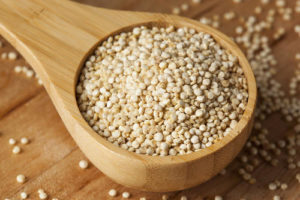
Used for hundreds of years by South American tribes, quinoa is a grain harvested for its nutrient-rich seed. Gluten-free and whole grain, quinoa has been gaining popularity for its health benefits and nutritious “ancient grain” attributes, and has become a staple in the health food industry. Quinoa has:
- High amounts of the flavonoids quercetin and kaempferol, two powerful compounds with anti-inflammatory and antioxidant properties.
- High levels of fibre, considerably higher than most other grains.
- Good amounts of protein along with all nine essential amino acids.
- High quantities of magnesium and iron.

